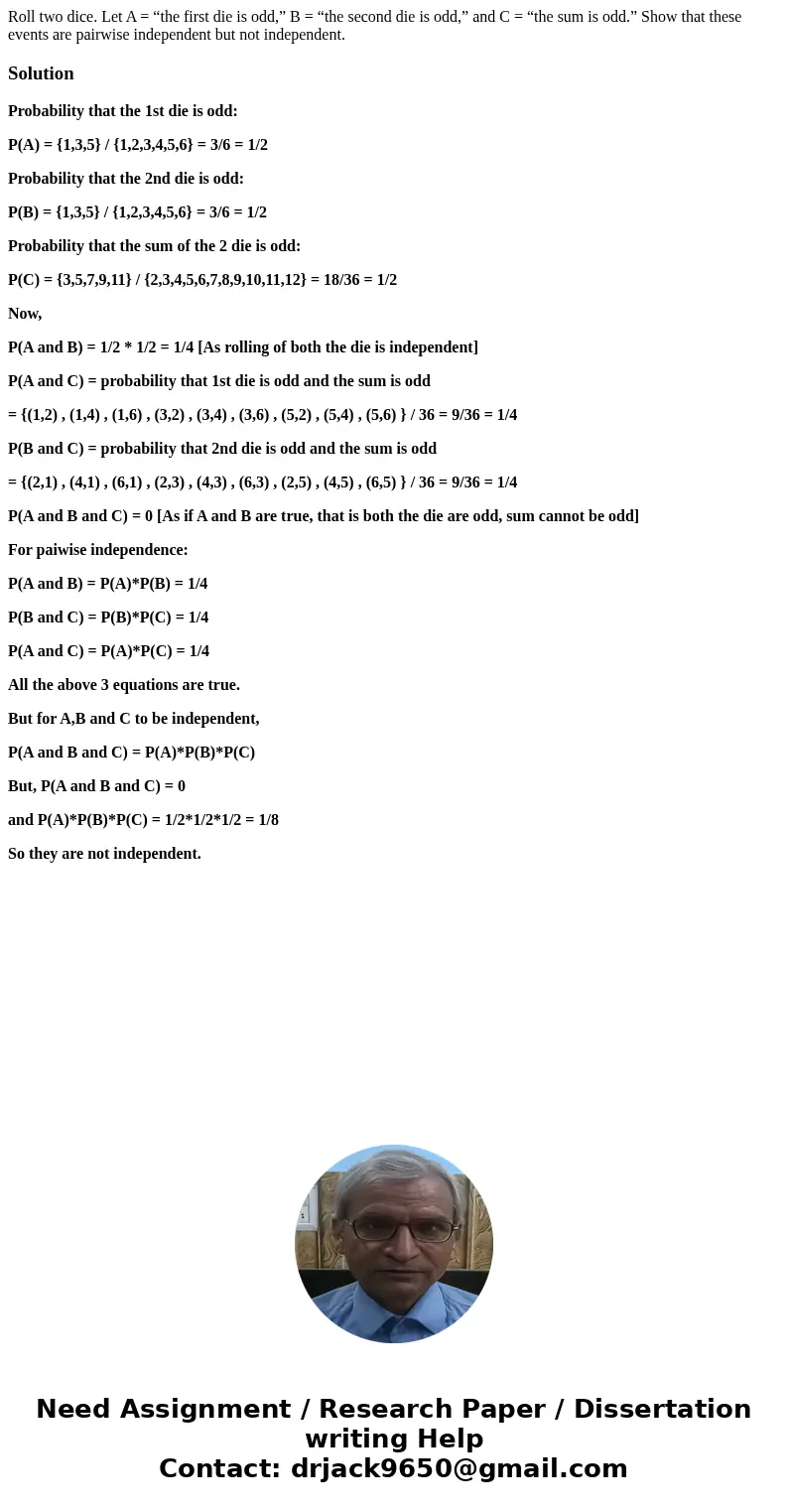Roll two dice Let A the first die is odd B the second die
Roll two dice. Let A = “the first die is odd,” B = “the second die is odd,” and C = “the sum is odd.” Show that these events are pairwise independent but not independent.
Solution
Probability that the 1st die is odd:
P(A) = {1,3,5} / {1,2,3,4,5,6} = 3/6 = 1/2
Probability that the 2nd die is odd:
P(B) = {1,3,5} / {1,2,3,4,5,6} = 3/6 = 1/2
Probability that the sum of the 2 die is odd:
P(C) = {3,5,7,9,11} / {2,3,4,5,6,7,8,9,10,11,12} = 18/36 = 1/2
Now,
P(A and B) = 1/2 * 1/2 = 1/4 [As rolling of both the die is independent]
P(A and C) = probability that 1st die is odd and the sum is odd
= {(1,2) , (1,4) , (1,6) , (3,2) , (3,4) , (3,6) , (5,2) , (5,4) , (5,6) } / 36 = 9/36 = 1/4
P(B and C) = probability that 2nd die is odd and the sum is odd
= {(2,1) , (4,1) , (6,1) , (2,3) , (4,3) , (6,3) , (2,5) , (4,5) , (6,5) } / 36 = 9/36 = 1/4
P(A and B and C) = 0 [As if A and B are true, that is both the die are odd, sum cannot be odd]
For paiwise independence:
P(A and B) = P(A)*P(B) = 1/4
P(B and C) = P(B)*P(C) = 1/4
P(A and C) = P(A)*P(C) = 1/4
All the above 3 equations are true.
But for A,B and C to be independent,
P(A and B and C) = P(A)*P(B)*P(C)
But, P(A and B and C) = 0
and P(A)*P(B)*P(C) = 1/2*1/2*1/2 = 1/8
So they are not independent.

 Homework Sourse
Homework Sourse